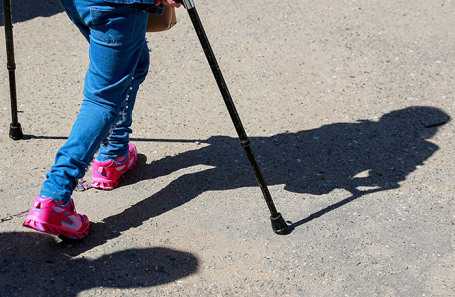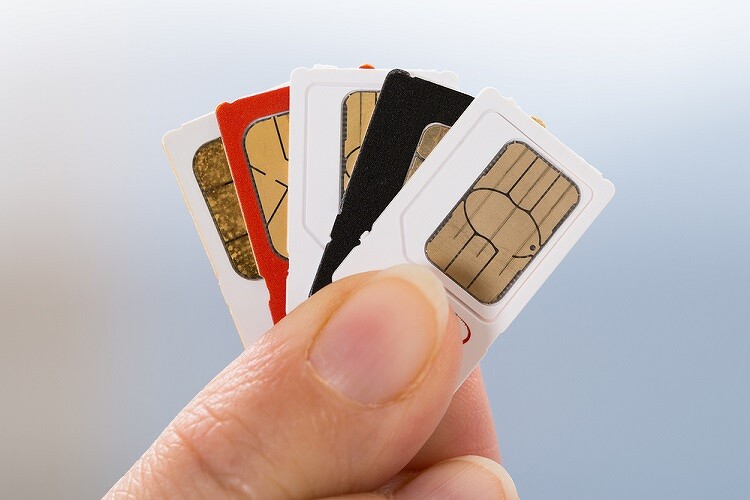Russian manufacturers of prostheses began to work more closely with China
This made it possible to reduce dependence on the West. But it does not completely solve the problem with the shortage of components
Photo: Sergey Fadeichev / TASS
After the sanctions and the logistical difficulties that arose, domestic manufacturers of prostheses began to work much more closely with China. Chinese technology has made it possible to reduce dependence on the West. And although, in general, domestic companies are coping with the difficulties that arise, this leads to an increase in prices for components.
, Russians who have received a serious injury are entitled to free prosthetics. There are enough companies in Russia that produce these means of rehabilitation. Cosmetic ones simply mask the defect, mechanical ones for the lower extremities allow you to restore lost functions and even run and swim. But for the upper limbs, such devices provide only the minimum necessary functionality: for example, to hold a glass or a spoon. The fingers of the prosthesis are clenched into a fist at the moment of bending the elbow. But you need to unclench with the help of a healthy hand.
But electronic prostheses allow a person to almost forget that he does not have a hand. The limb responds to impulses in the muscles, contracts and unclenches itself, the compression force is controlled. And even fingers can not bend all at once, but independently of each other.
And if the Russian manufacturer manufactures the first prostheses in large quantities, from materials mainly of domestic origin, then those who create bionic hands, even during the pandemic, faced a shortage of components, the need for contracts with additional, spare suppliers, new logistics routes. And now with sanctions. Skoltech professor Dmitry Kulish continues:
Dmitry Kulish
professor at Skoltech
“On the one hand, due to sanctions, there is a shortage of high-tech components, especially complex controllers and motors. On the other hand, most of the people I know have completely solved these problems. They lost either money or time. That is, now they have either replaced those nodes that fell under the sanctions with those that did not, mainly Chinese ones. Or they buy sanction nodes through the fourth hand, overpaying three times.
Some of the complex solutions that were produced by American, European and Japanese companies, as the expert notes, are now being created by domestic firms. So in the future, the situation may play into the hands of Russian production. But foreign aid is still indispensable. China is now in the top of foreign suppliers of components. In many units for prostheses, as market participants say, it turned out to be no worse than its Euro-American counterparts.
Well, there are some components in electronic devices that are still more expedient to purchase from “unfriendly” countries, says Ivan Krechetov, co-founder and general director of Klaiber Bionics LLC, a company that produces bionic hands:
Ivan Krechetov
co-founder and CEO of Klaiber bionics LLC
“As for our prosthesis, unfortunately, we don’t have any Russian analogues for our electromyographic sensors yet, since they use quite prosthetic analog components from American companies. And now while we are ready to overpay for the former cost. Prices rose anywhere from three to five times. We just checked in the last two weeks, updated the lists of components in order to understand what we strongly depend on - we do not depend. For the electrodes, fortunately, it is possible to keep the same elemental base for the time being, to get it without alteration. As for the electronic control module for the prosthesis itself, for the processor modules, the situation is more complicated, and we are now just rewiring printed circuit boards to adapt to the Chinese element base. If we talk about the Russian element base, we have quite specific high-performance processors,
If we talk about mechanical prostheses, then there are no problems with components, technologies or materials. Today, domestic companies have developed and are testing completely Russian knee modules, prosthetic feet and other components, said Ruslan Shaglamdzhyan, General Director of GlavOrto LLC.
Ruslan Shaglamdzhyan
General Director of GlavOrto LLC
“Foreign manufacturers are trying to cooperate with us so that we can change or repair [prostheses previously installed by Russians] under warranty. There are production sites in Russia, where they are also accepted and sent to be replaced under warranty. With some manufacturers, this is not possible, but we quickly switched to analog products and it turned out that the service is no worse. We switched primarily to the Russian market, and it turned out that the Russian market is no worse, and quickly, quickly created the same analogues that were taken from abroad.”
Market participants note that there is no shortage in the segment of primary rehabilitation means - crutches, walkers and wheelchairs.

